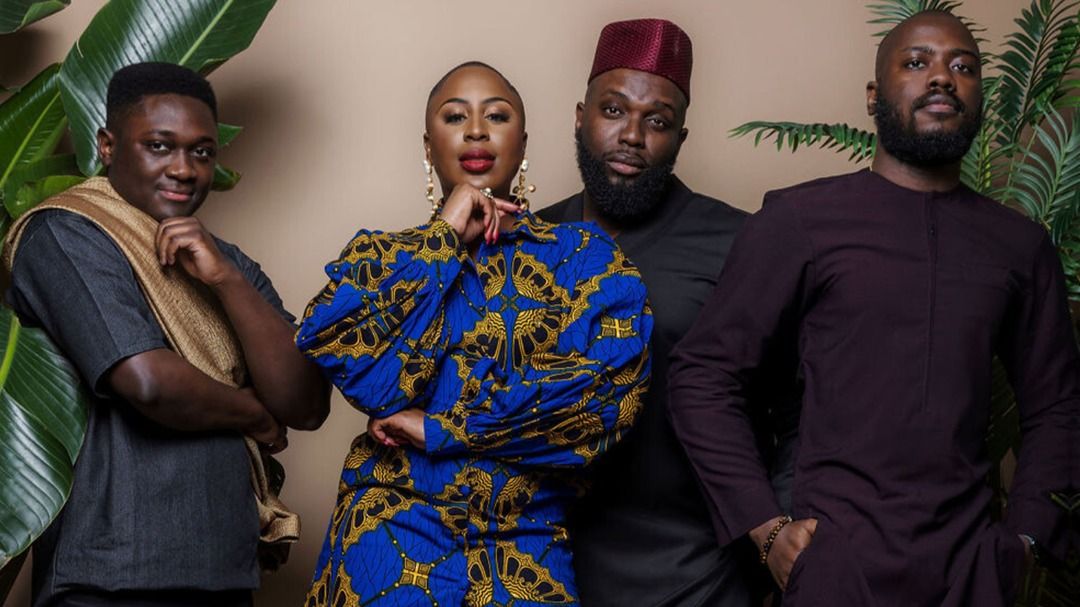Inside Afropolitan's plan to build an internet country for Africans
Afropolitan is a community-as-a-service company for the African diaspora that wants to build the world's first-ever internet country.

In June 2020, Afropolitan, an African community-as-a-service company raised $2.1 million in pre-seed from Balaji Srinivasan, an influential figure in the crypto space and the ex-CTO of Coinbase, to commence the process of building what it described as the first-ever internet country for Africans.
Launched in 2016 by Eche Emole and Chika Uwazie, Afropolitan creates a series of community-led opportunities for Africans and those in the diaspora through travel, events and media. With the aforementioned investment, the company is implementing its four-phased plan to build this internet country.
To further gain clarity on what Afropolitan is building, we hosted Eche on #BDTalks where he shared the manifesto of the internet country and what Afropolitan has been up to since the pre-seed.
How did you arrive at Afropolitan?
Eche: It was a natural evolution! I have been bringing the Africans in the diaspora together through events in the U.S for over 10 years now. Afropolitan as an organisation started in 2016 while I was in law school.
In 2019, I left my role at Flutterwave and transitioned to focus on Afropolitan on a full-time basis. Wherever we look and wherever we are, Africans worldwide are subjects, not citizens. Access to opportunity is scarce. Security is not guaranteed. For the most part, life is just about surviving, not thriving. We want to solve this true an internet country.
How would you define Afropolitan?
Eche: Today, we are building a network of the best Africa has to offer from various sectors. Although we are starting as a network today, we want to build the first internet country.
The idea for this is encapsulated by Balaji Srinivasan, the former CTO of Coinbase, who proposed the idea of a network state and this is what an internet country will look like. The Network State is a digital nation launched first as an online community before materializing physically on land after reaching critical mass.
A network state is a highly aligned online community with a capacity for collective action that crowdfunds territory around the world and eventually gains diplomatic recognition from pre-existing states.
At its full vision it will take over 10 years for an internet country to get diplomatic recognition in Africa but to be honest we need to get there faster due to the existential crises on our continent.
The internet is our biggest equaliser! The internet is the only thing that has enabled us to transition our barriers as Africans, 15 years ago it was impossible for a developer in Enugu to be working remotely as a full-time staff at a company in the West. Same with the music industry, Afrobeats artists are thriving because of the internet.
Experiencing Afropolitan
Eche: Going by the network state definition, we pivoted into media by building an online community on Clubhouse with over 50,000 members, this highly aligned community is our minimum viable product (MVP).
In 2020, during the #EndSARS protest in Nigeria, we crowdfunded and raised funds via our online community, this reflected our capacity for collective action. As a community, we also supported the refugees during the Ethiopian War and also participated in the Black Lives Matter protests in the U.S by marching and also proposing solutions to police brutality in the states via our online community.
We are not there yet when it comes to crowdfunding territories but our MVP is the Year of Return we held in 2019, we facilitated a million-plus people in the diaspora through a series of events in Ghana—this has never been done—and it generated about $2 billion worth of economic activities.
Another thing is, so many people want to leave the continent but they don't have passport privileges. Through diplomatic recognition from pre-existing states, Afropolitan intends to unlock these opportunities at scale for its citizen providing them more access compared to their countries of origin. At the moment, the Afropolitan passport which will be on sale in December 2022 cannot allow the holders access to nations but Afropolitan events.
The Afropolitan passport is membership-based for now, but it will guarantee citizenship in the future. — Eche Emole
Phase four of the Afropolitan Manifesto
Eche: Afropolitan will leverage its network, capital, and legitimacy accrued over its last three phases—network, super app and minimum viable state—to acquire land in negotiation with partner governments.
The land piece will look like a "Chinatown/Afropolitan Town" where our members can establish a physical presence and create economic opportunities. At this stage, the Network State will serve as the "digital capital" which governs our physical Districts. Eventually, we will build a more extensive network of Charter Cities akin to Singapore and Hong Kong.
Afropolitan is proposing a solution to the problems created by the African governments, and we also want to serve as a model for the rest of the world.
We are not building an elitist nation, we do not care where you are born or what school you attended. Afropolitan is open to all! Instead of a social club, see us as a network of people across different social classes.
Through our network today, we have enabled founders to get funding and have also created job opportunities for our community members.
Afropolitan and its Challenges
Eche: The idea on its own is audacious and scary! One of the biggest challenges is the mindset, we need to reorient ourselves as Africans to have the ambition to execute big dreams.
We have also not done so much in simplifying the message about what we are building and that is why we are having this conversation.
Follow us on Twitter for more insightful conversations about the African tech ecosystem.






